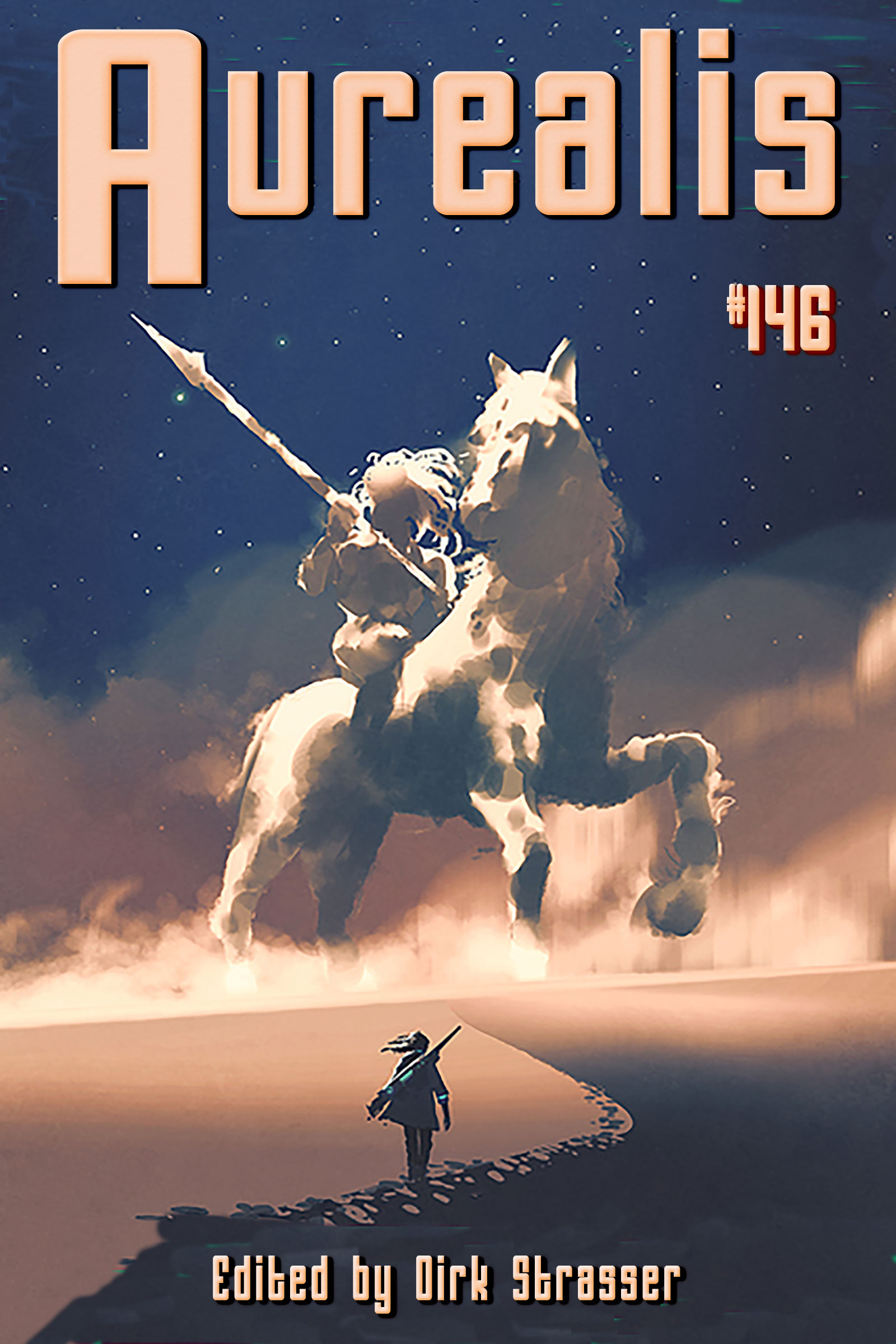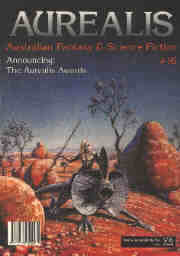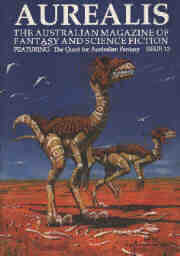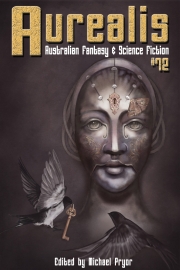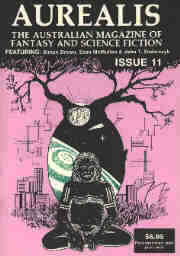Aurealis #146
$3.99
Aurealis #146 has more speculation than you can shake a stick at! Fiction by Verity Borthwick, Maria Lewis, and Caitlin Rozakis, non-fiction on goblins, hopepunk and world-building, our reviewers’ picks for this year’s best speculative fiction books, and much more.
- From the Cloud — Dirk Strasser
- The Tannfé — Verity Borthwick
- The House That Hungers — Maria Lewis
- Those Who Remain — Caitlin Rozakis
- Goblins: Greed, Anti-Semitism and Neurodivergence Throughout History — Amy Laurens
- Post-Apocalyptic Fiction, Hopepunk, COVID-19 and the Fallacy of Near-Total Barbarism — Lachlan Walter
- An Introduction to World-building in Early Australian Speculative Fiction — Gillian Polack
Not every new author is a new author. Sometimes, no matter how widely you read, no matter how well you think you know the genre, you come across an author that is brand new to you, someone who you hadn’t even heard of, someone who gets you thinking, ‘How could I have missed that one?’
Walter Tevis is one of those authors for me. I’m sure that quite a few of you reading this would be aware that he was a significant science fiction writer. I wasn’t. There are a lot of authors that I haven’t read, but I can’t even recall ever coming across Tevis’s name until about a year ago. He was brand new to me… so how could that have happened?
Well, part of the answer may be that the SF community seems to have forgotten him, perhaps because he was never as warmly embraced as he could have been in the first place. After all, he straddled the literary and genre audiences. Make no mistake though, he wasn’t one of those mainstream writers who dabbled in science fiction while somehow also being dismissive of it. He knew the tradition he was writing in.
I didn’t come across him because someone in the SF community mentioned his name. I first became aware of Walter Tevis as the author of the book on which the Netflix series The Queen’s Gambit was based. I used to play quite a bit of chess up until about the age of thirteen or fourteen, and I found the series riveting on many levels. So much so that I sought out the book.
I was in for quite a few surprises. I discovered that 50% of Tevis’s novels have been made into major films. That’s a strike rate that few authors would surpass: The Hustler, The Colour of Money, The Man Who Fell to Earth… Wait, that science fiction movie starring David Bowie?
And it turns out half of his long fiction output was science fiction. Who knew? Well, obviously not me! After reading The Queen’s Gambit, I went straight to The Man Who Fell to Earth, a stranded alien story like no other, and Mockingbird, set in a drugged, depopulated world where most people can no longer read. They were both moving and powerful novels that showed a deep understanding of the genre and humanity. I’m now looking forward to reading his 1983 novel The Steps of the Sun, where the world is engulfed in an energy crisis and China is the leading superpower.
And then there are his short stories, some of them published in The Magazine of Fantasy & Science Fiction, and Galaxy. One that made an impact on me was ‘Rent Control’ which first appeared in Omni magazine in 1982 where a couple find that time literally stops when they touch each other. It’s a playful story with some profound undertones that develops in surprising ways.
As you’ve gathered by the dates of some of Walter Tevis’s publications, he isn’t a new writer. He is definitely of a previous generation. He died of lung cancer in 1984. But he is new to me. And I’m glad I discovered his works.
All the best from the cloud!
Dirk Strasser
From The Tannfé by Verity Borthwick:
‘Never believed in the tooth-fairy myself—’ Shawn said.
‘Not even when you were small?’
‘Nope, not even. Put my parents through the wringer though. Worked out a pricing chart and everything. Figured the molars were worth a bit more. ’Specially those big bastards at the back.’
From The House That Hungers by Maria Lewis:
Living in a haunted house wasn’t so bad as long as you had other places to go.
From Those Who Remain by Caitlin Rozakis:
She looked straight ahead. The dead can only be seen from the corner of the eye.
From Goblins: Greed, Anti-Semitism and Neurodivergence Throughout History by Amy Laurens:
In a series about the symbolism of popular paranormal and mythic creatures, it seems perhaps odd to include a piece on goblins. They lack the mystique of the mermaid, the pervasive flexibility of the fairy, the ubiquitous charm of the unicorn and the allure of the vampire or werewolf.
From Post-Apocalyptic Fiction, Hopepunk, COVID-19 and the Fallacy of Near-Total Barbarism by Lachlan Walter:
If I had a dollar for every time I’ve heard someone describe life under COVID-19 as ‘like something from a piece of post-apocalyptic fiction’, then I would be a reasonably rich man.
From An Introduction to World-building in Early Australian Speculative Fiction by Gillian Polack:
When we talk about world-building, the conversation is often part of instructions for writers. ‘Here is advice on how to build the world for your novel’ or to do with gaming.

